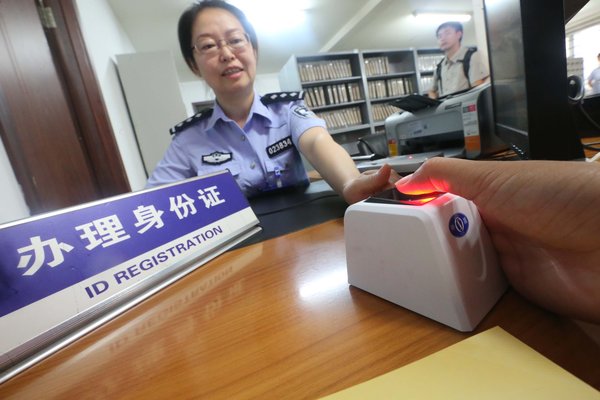All births entitled to household registration
(China Daily) Updated: 2015-11-25 08:04
 |
|
A fingerprint scanner is tested at a police station where all residents in Beijing will have their fingerprints taken for identity cards, May 26, 2013. [Photo/CFP] |
The recent family planning policy adjustment that allows all couples to have two children has brought into the spotlight those residents without household registration in the country.
According to the country's laws and regulations, every Chinese birth should be properly registered at the local police office. Such registration is mandatory for a person to enjoy legal rights and social welfare.
Yet more than 13 million Chinese are found to be without a proper household registration or identification card, a problem that the Ministry of Public Security vowed to address at a Monday meeting.
Chinese parents are legally required to observe the family planning policy that centered on one child for each couple of the Han ethnic group before recent adjustment. The regulations demand that a couple violating the policy by having more children than they are permitted pays a fine for any additional birth.
But such a fine is beyond the financial capabilities of many couples to pay, rural residents in particular, and thus many don't report to the police any additional babies they have beyond the number they are allowed under the family planning policy. Some local law enforcers even make it a condition that any fine be paid before granting a child that is in violation of the family planning policy the documents necessary for legal status.
However, these children are innocent of any wrongdoing, and they should be granted the legal status that would enable them to access social resources. Their parents' violation of the family planning law does not disqualify them from becoming citizens of the country.
Also among those without legal registration are abandoned children and those born of single mothers, whose household registrations are usually withheld due to procedural difficulties.
By promising to grant household registrations and identification cards to those without them, the Ministry of Public Security is answering the practical needs of these people. The move also conforms to the country's basic policy of establishing the rule of law, as urged repeatedly by the top leadership.
But local authorities should reflect on how to carry out government policies without violating a person's legal rights, since even the recent adjustment to the family planning policy that allows all couples to have two children requires penalties for those that violate it.
Meanwhile, giving the 13 million residents the legal status they deserve would be a substantial step toward governing the country according to law.











